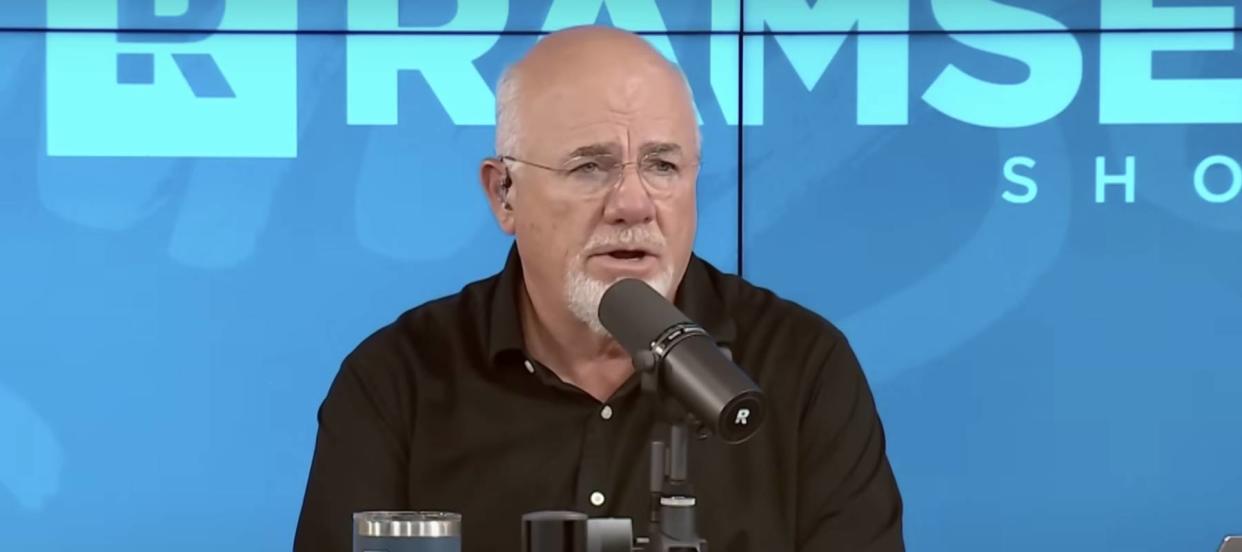‘In the Fauci pandemic, we didn’t know what was gonna happen’: Dave Ramsey explains how to invest during times of turmoil — says even after 9/11 you should’ve been buying big. Is he right?

While the stock market can be volatile and affected by global events in the short term, it has historically provided strong returns over the long term. The S&P 500 benchmark index has returned an average of 10.53% per year over the past century.
That’s why when financial expert Dave Ramsey, host of the “The Ramsey Show,” received a question from a listener concerned about the war in the Middle East, he advised continuing to invest in times of turmoil.
Don’t miss
Commercial real estate has outperformed the S&P 500 over 25 years. Here's how to diversify your portfolio without the headache of being a landlord
Finish 2023 stronger than you started: 5 money moves you should make before the end of the year
The US dollar has lost 87% of its purchasing power since 1971 — invest in this stable asset before you lose your retirement fund
Ramsey used the example of the COVID-19 pandemic to explain his stance. “When we were in the Fauci pandemic, we didn’t know what was gonna happen,” he said. The global health crisis created significant economic uncertainty. With a rapid rise in cases and ensuing lockdowns, markets plummeted and unemployment soared. However, in a short period stocks had bounced back.
Global events like pandemics and wars can make investors jittery. But Ramsey says that although they may temporarily affect your stock investments, the market is resilient.
He advises against panic-driven decisions, like selling stocks at low prices or shifting to conservative assets, and says it’s better to think about the long-term and wait for the market to recover, as it always has in history.
Investing when times are tough
Ramsey goes one step further and recommends investing more when the market is down. He agrees with renowned investor Warren Buffett’s philosophy of being greedy when others are fearful. For example, he advocates for dollar-cost averaging, a strategy of investing a steady amount regularly, no matter the stock prices. This way you end up buying more when prices are low and gain more when the market recovers. The main advantage to this strategy is you lower your risk by not trying to time the market with lump sums.
Ramsey recalls the 9/11 attacks, which caused an immediate market panic. "I kept telling people, 'Look, buy, buy, buy. It's time to buy," said Ramsey.
Despite the initial shock, the market had rebounded by the following month. That's why he argues that buying stocks during such crises can be advantageous.
And experts who have crunched the numbers would agree. A review of 20 major geopolitical events dating all the way back to World War II showed stocks had fully recovered losses within an average of 47 trading days after an average maximum drawdown of 5%, according to a CFRA study cited by LPL Research.
Read more: 'It's not taxed at all': Warren Buffett shares the 'best investment' you can make when battling inflation
Here's two examples of stock market resiliency after crises using the Dow index:
First World War: Stocks plunged with the onset and the market was closed for six months. "When they reopened, the Dow rose more than 88% in 1915. From the start of the war in 1914 until it ended in late 1918, the Dow gained over 43%—roughly 8.7% annually," according to Fortune.
Second World War: "From the start of World War II in 1939 until it ended in late 1945, the Dow was up a total of 50%, more than 7% per year," wrote Ben Carlson, director of institutional asset management at Ritholtz Wealth Management, in another Fortune article.
Understanding the risks and rewards
While this strategy has worked in previous cases, risks still exist, especially if conflicts escalate or recessions deepen. Maintaining a long-term mindset is key to successful investing, but you need to mitigate risks by diversifying across different asset classes, such as stocks, bonds and real estate. Investing in stocks during downturns can be rewarding long-term, especially if you’re a younger investor with time to recover from short-term losses. Having the courage and a contrarian mindset to capitalize on market fears can pay off.
Control what you can, accept what you can’t
Social media and the 24/7 news cycle can make you nervous and afraid, but Ramsey’s co-host, Jade Warshaw, reminds us to focus on what we can control and accept the things that we can't control.
Ramsey’s suggestions may not be suitable for everyone, but usually align with historical trends of market recovery post-crisis. A well-anchored investment plan based on market principles and rational allocation strategies is advisable. It’s also important to focus on what you do have some control over, such as debt elimination and putting away savings regularly. This will help you keep progressing, even when the markets are tough.
What to read next
Thanks to Jeff Bezos, you can now cash in on prime real estate — without the headache of being a landlord. Here's how
Worried about the economy? Here are the best shock-proof assets for your portfolio. (They’re all outside of the stock market.)
Rising prices are throwing off Americans' retirement plans — here’s how to get your savings back on track
This article provides information only and should not be construed as advice. It is provided without warranty of any kind.
